巧克力3D打印连续进料装置设计(含CAD图,SolidWorks三维图)
无需注册登录,支付后按照提示操作即可获取该资料.
巧克力3D打印连续进料装置设计(含CAD图,SolidWorks三维图)(任务书,开题报告,论文说明书18000字,CAD图10张,SolidWorks三维图)
摘要
随着现代化工业的不断发展,现代制造技术越来越发达,制造方法也变得更加多样化。而3D打印机技术作为一种新型成型技术,受到了人们的广泛关注。3D 打印技术是集机电一体化、计算机和信息等技术一体的快速成型技术,而这项技术正在迅速发展着,在汽车、航空航天、医学方面、食品工业、建筑行业和土木工程等行业上都有所应用。本文以食品工业的巧克力3D打印为目标,研究了3D打印的成型方法和巧克力的3D成型技术,主要设计和实现了一个用于巧克力3D打印的连续进料装置,并进行了相关实验和分析工作。主要研究工作如下:
针对3D打印技术了解了3D打印的相关历史,并且了解掌握了3D打印的多种成型技术。
针对巧克力材料的多样性,选择了合适种类的巧克力来进行挤出,并且选了适于巧克力3D打印的成型方法,便于设计用于巧克力3D打印的连续进料装置。
对巧克力3D打印的连续进料装置进行了结构设计,设计了进料漏斗、进料套筒、螺杆、喷头和固定支撑件等结构,其中主要设计螺杆的相关参数,并且对螺杆进行了强度校核。然后对喷头进行了温度场和流场的分析。
将整个结构做出了实物,并进行了相关实验和分析。
为巧克力3D打印机提供一种连续进料的装置,为新型的巧克力打印机提供一种新思路。
关键词:3D打印,巧克力连续进料,螺杆,巧克力材料。
Abstract
With the continuous development of modern industry, modern manufacturing technology become more and more developed, and manufacturing methods have become more diversified. As a new molding technology, 3D printer technology has been widespread concerned. 3D printing technology is a rapid molding technology, which is integrated of mechanical, electrical, computer and information. And this technology is rapidly developing, it has been applied to the automotive, aerospace, medical, food industry, construction industry and civil engineering and other industries. In this paper, we focus on the 3D printing of chocolate in the food industry, and study the 3D forming method and the 3D molding technology of chocolate. We mainly design a continuous feeding device for chocolate 3D printing and make it out, we also have carried out relevant experiments and analyzed the work. The main research work is as follows:
(1) According to 3D printing technology, I have understood the relevant history of 3D printing, and understood a variety of molding technology which used for 3D printing.
(2) For the diversities of chocolate materials, I select the appropriate type of chocolate which is able to be squeezed out, and select molding method which can be used for chocolate 3D printing. After doing these jobs, I can make it easy to design a continuous feeding device for chocolate 3D printing.
(3)I design the structure of the continuous feeding device which used for chocolate 3D printing. And I design the structure of the feed funnel, feed sleeve, screw, nozzle and fixed support. According all of these structures, I mainly design the parameters of the screw and check the intensity of the screw. Then I analyze the nozzle by temperature field and flow field.
(4)I make the whole structure, and carry out the relevant experiments and analysis.
What I do provides a continuous feeding device for chocolate 3D printers and provides a new idea for new chocolate printers.
Key words: 3D printing, Chocolate continuous feeding, Screw, The materials of chocolate.

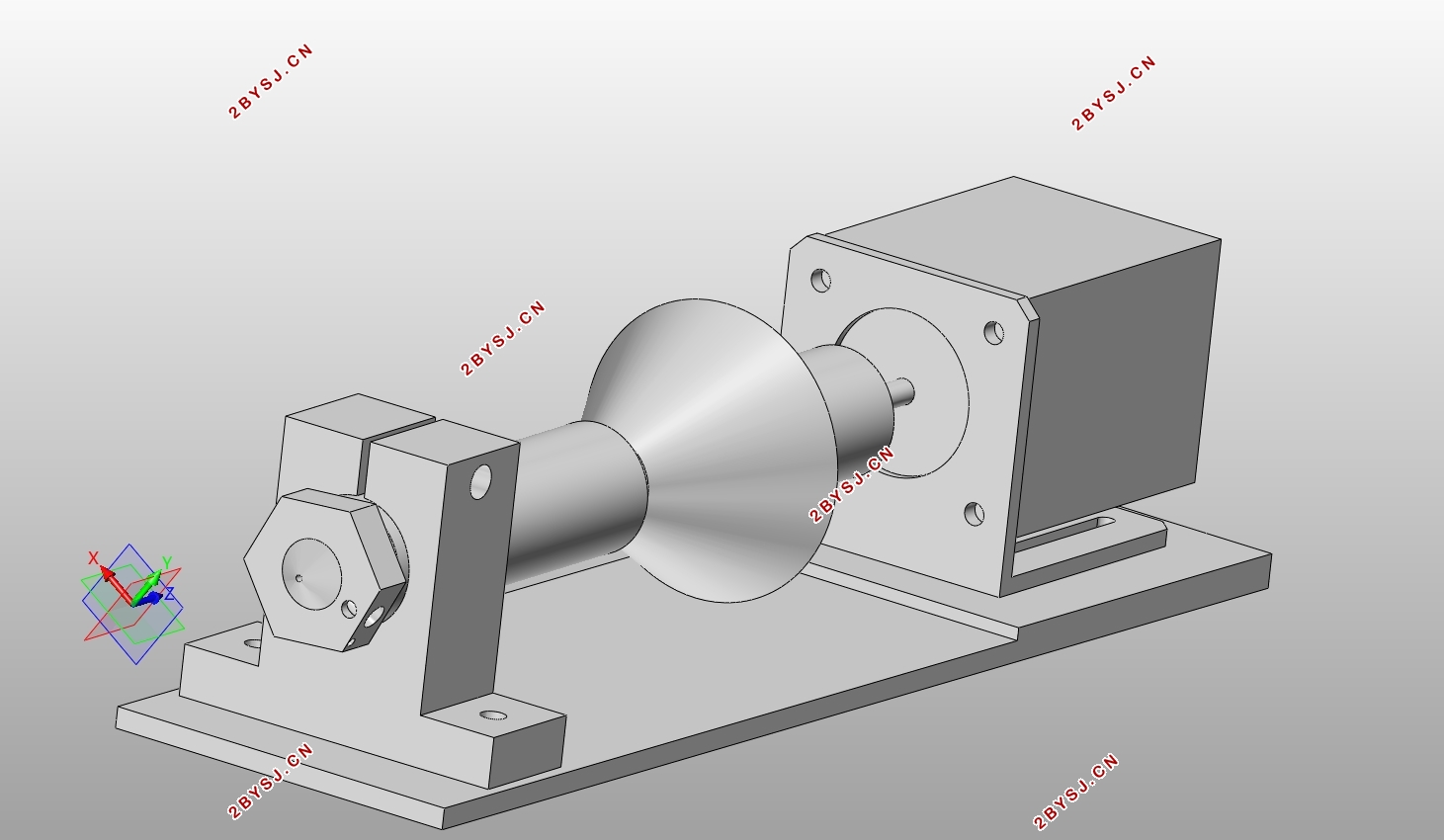
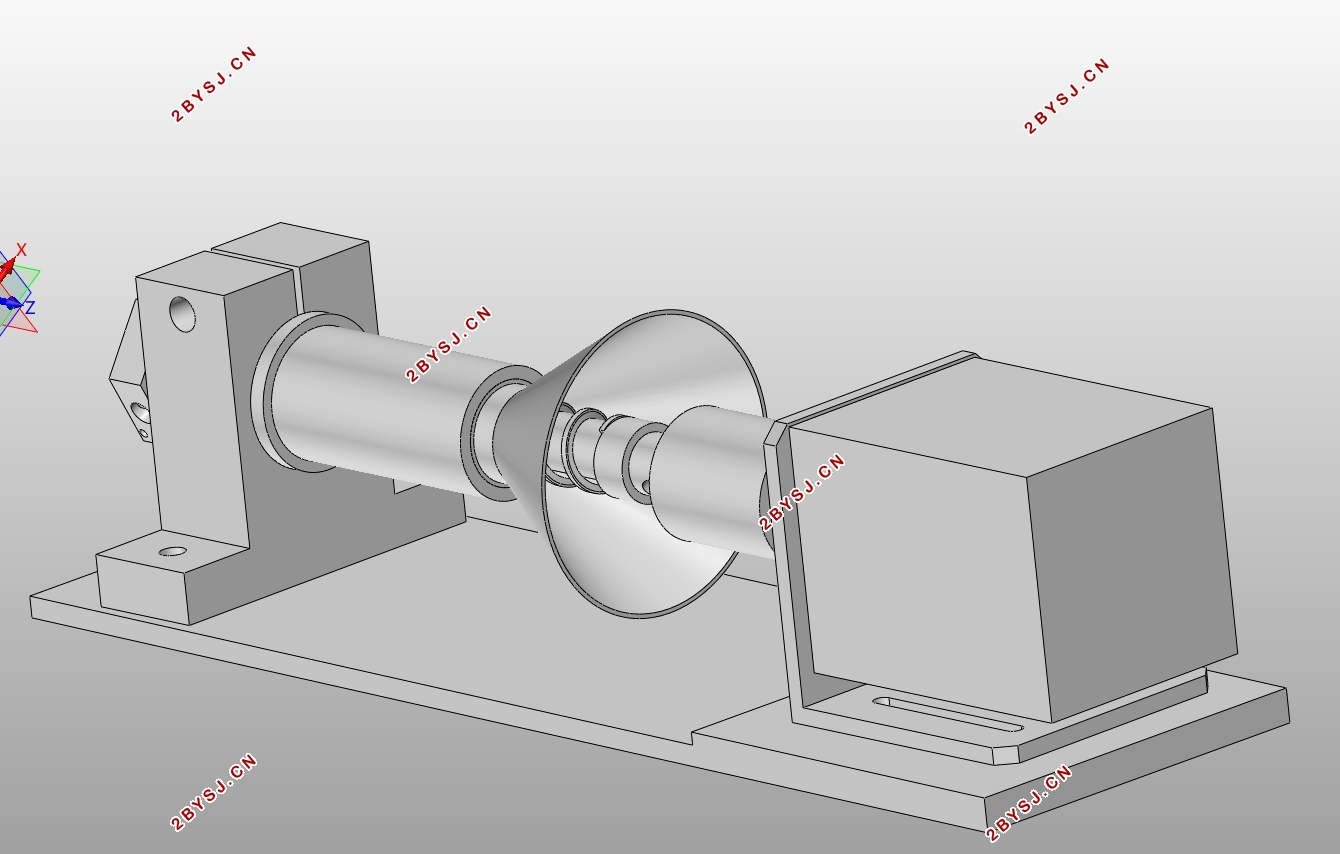
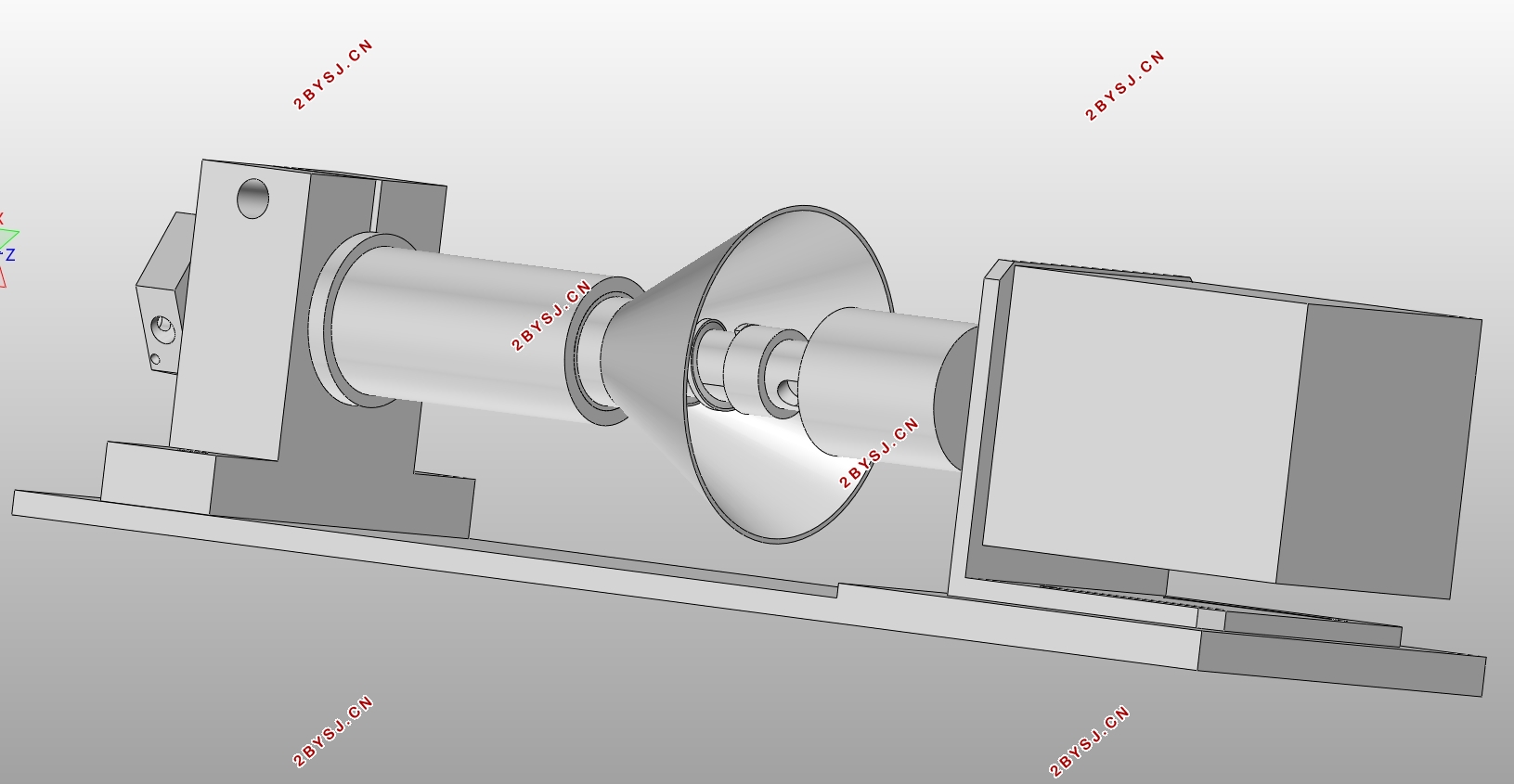
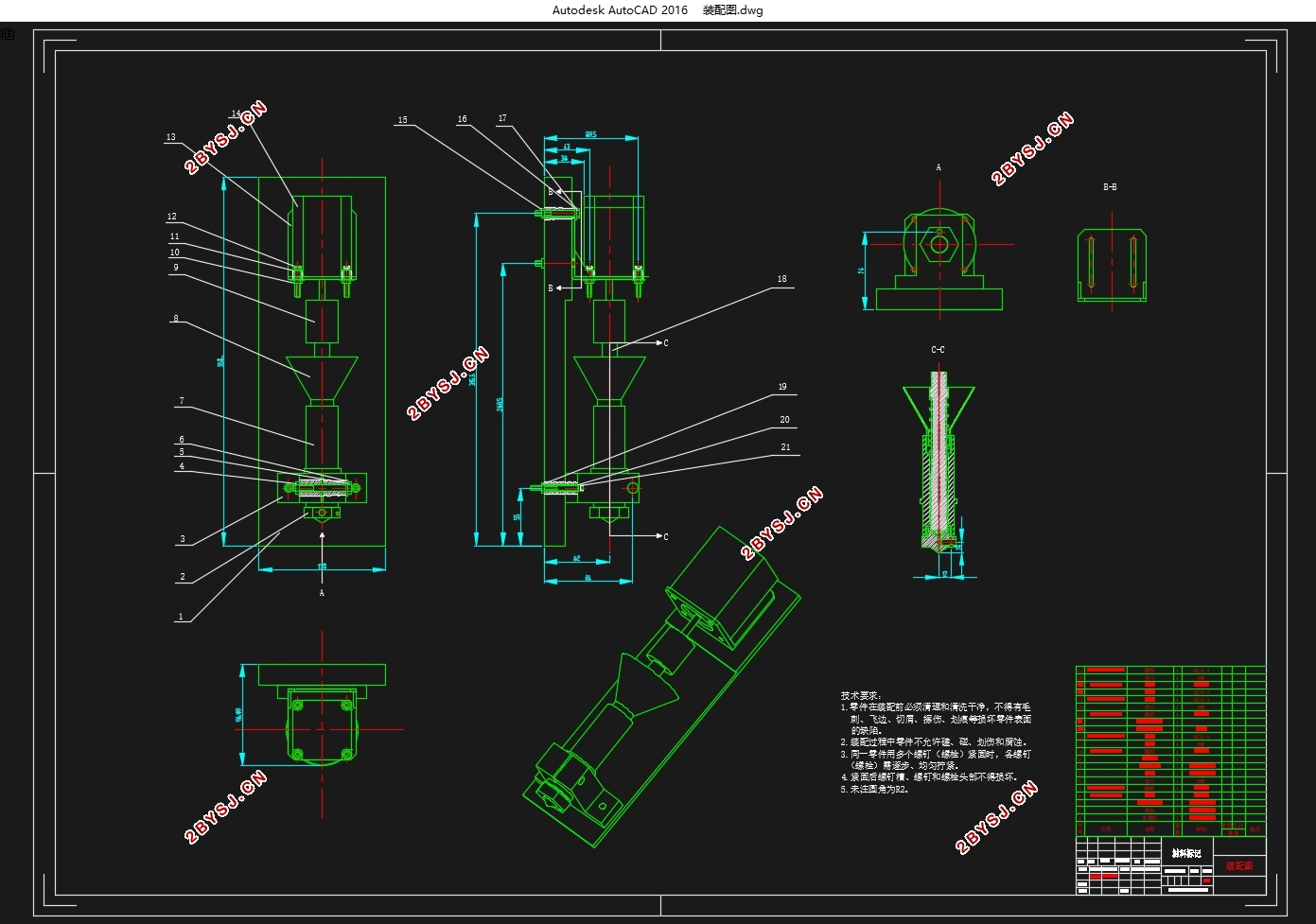
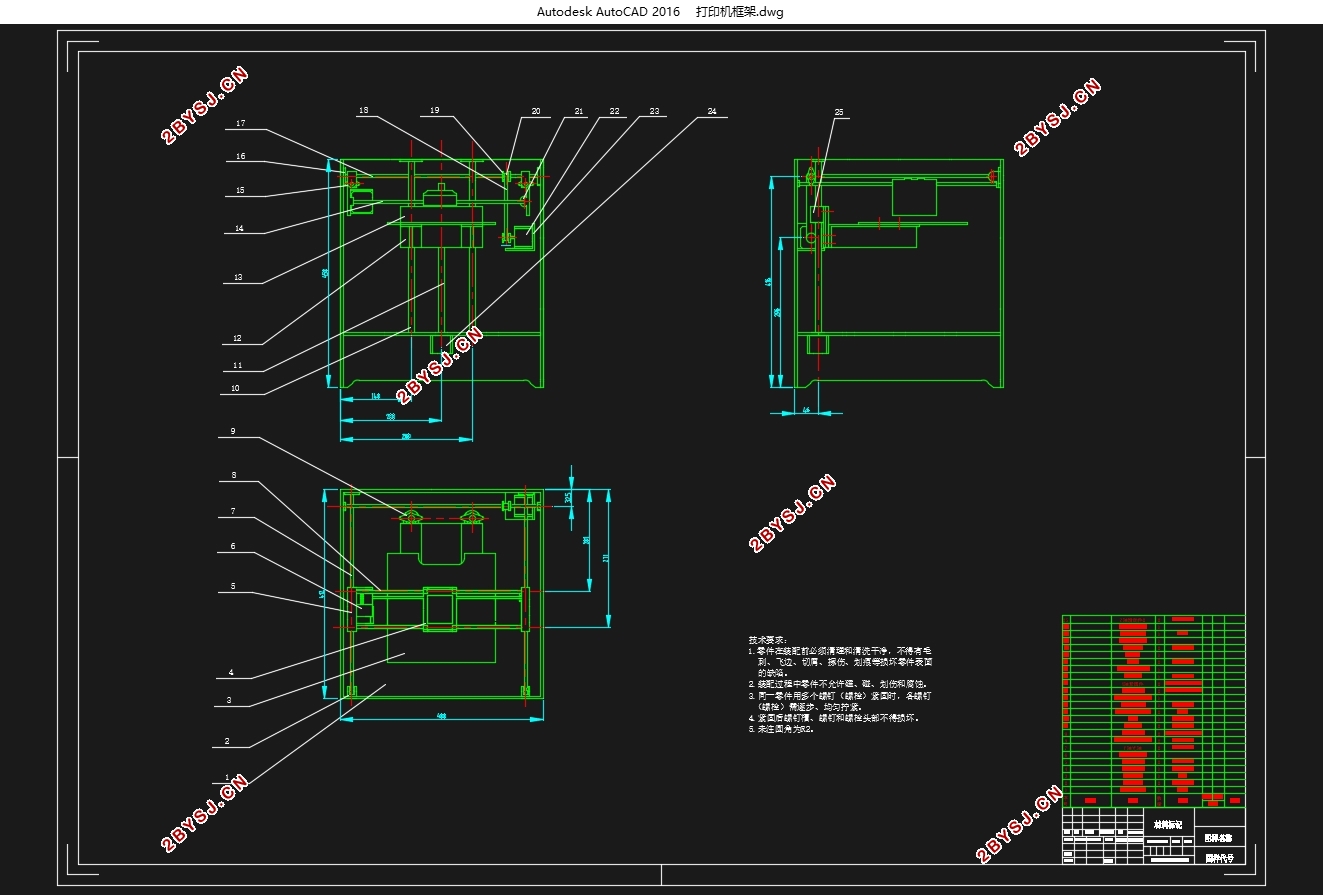
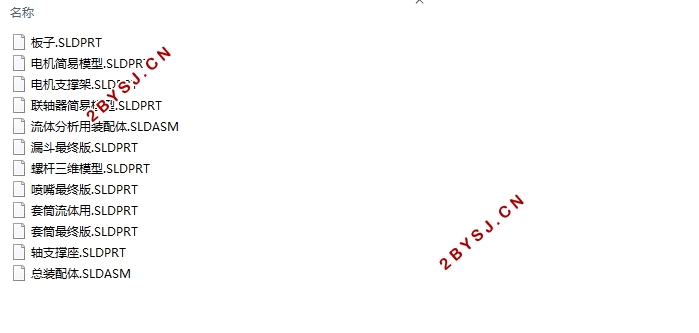
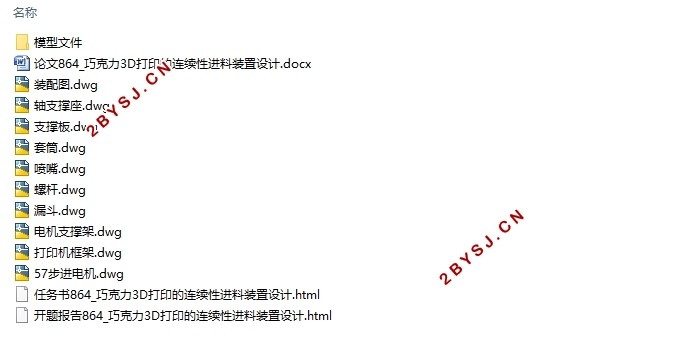
目录
第1章 绪论 1
1.1 毕业设计任务与要求 1
1.2 设计目的意义 1
1.3 国内外研究现状及发展趋势 2
第2章 整体方案设计 6
2.1 设计方案一 6
2.2 设计方案二 7
2.3 方案的比较与选择 8
第3章 巧克力3D打印成型方法 9
3.1 3D打印技术的基本原理 9
3.2 巧克力材料的属性 11
3.2.1 巧克力材料的基本特性 11
3.2.2 巧克力材料的分类及选用 11
3.3 巧克力3D打印成型方法 12
第4章 巧克力连续进料装置结构设计 14
4.1 进料漏斗的设计 14
4.2 进料螺杆的设计 15
4.2.1 螺杆的材料选择 15
4.2.2 螺杆的类型选择 15
4.2.3 螺杆直径D和长径比L/D的确定 16
4.2.4 螺杆螺杆的分段 16
4.2.5 螺槽深度和压缩比ε的确定 17
4.2.6 其他相关参数的确定 17
4.2.7 挤出流量的计算 18
4.2.8 螺杆的强度计算6 19
4.2.9 螺杆的整体结构图 19
4.3 进料套筒的设计 20
4.4 打印喷头的结构设计 22
4.4.1 喷头的加热系统的设计 22
4.4.2 喷头的结构设计 22
4.5挤料装置的温度场分析 24
4.5.1 温度热传学理论 24
4.5.2 温度场分析 24
4.6挤料装置的流场分析 28
4.7 电机的选型及相关计算 31
4.8 固定结构的设计 33
4.8.1 固定套筒的结构设计 33
4.8.2 电机支撑架的结构设计 34
4.8.3 固定支撑板的结构设计 35
4.9 整体结构图 36
第5章 巧克力连续进料装置控制系统设计 37
5.1 控制系统流程图 37
5.2 控制系统基本构成 38
第6章 实验验证与分析 39
6.1 实验系统 39
6.2 实验系统 39
6.3 测试分析 40
第7章 结论与展望 42
7.1 总结 42
7.2 展望 42
参考文献 44
致谢 46
